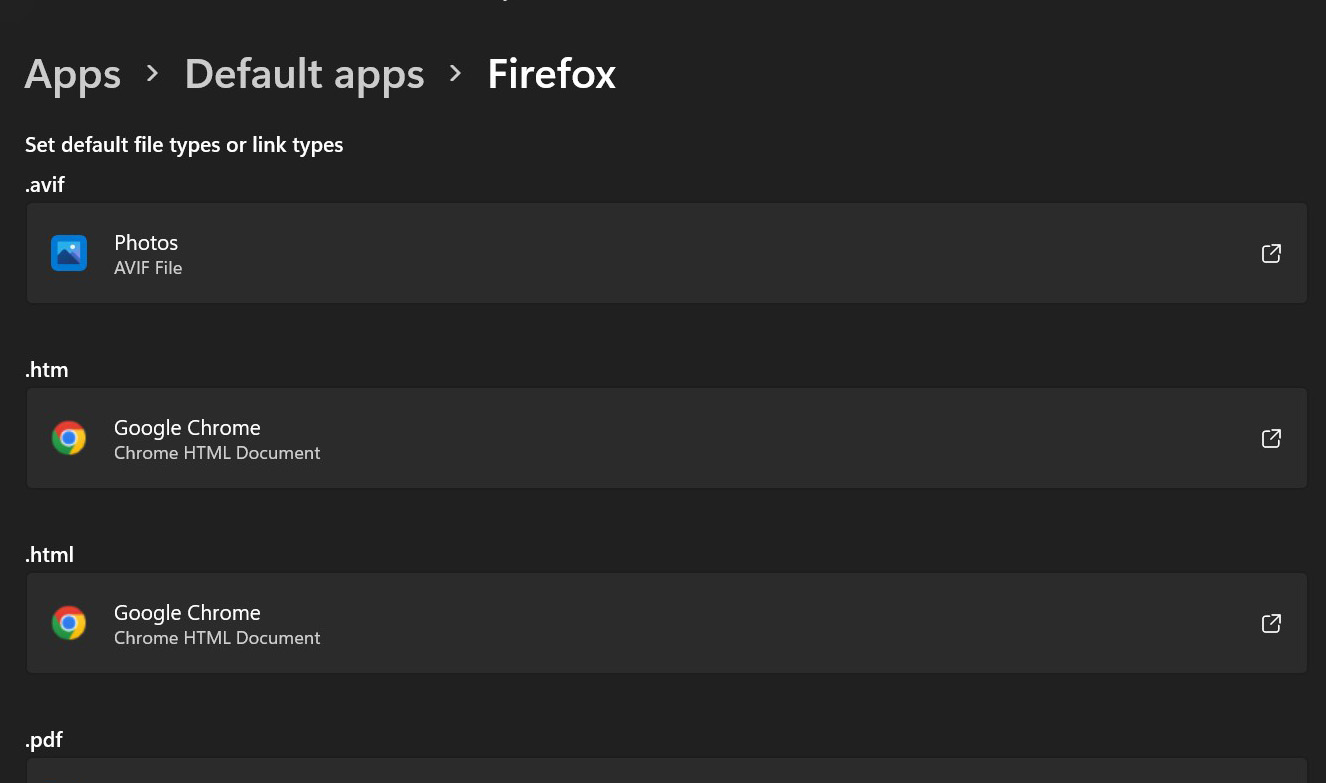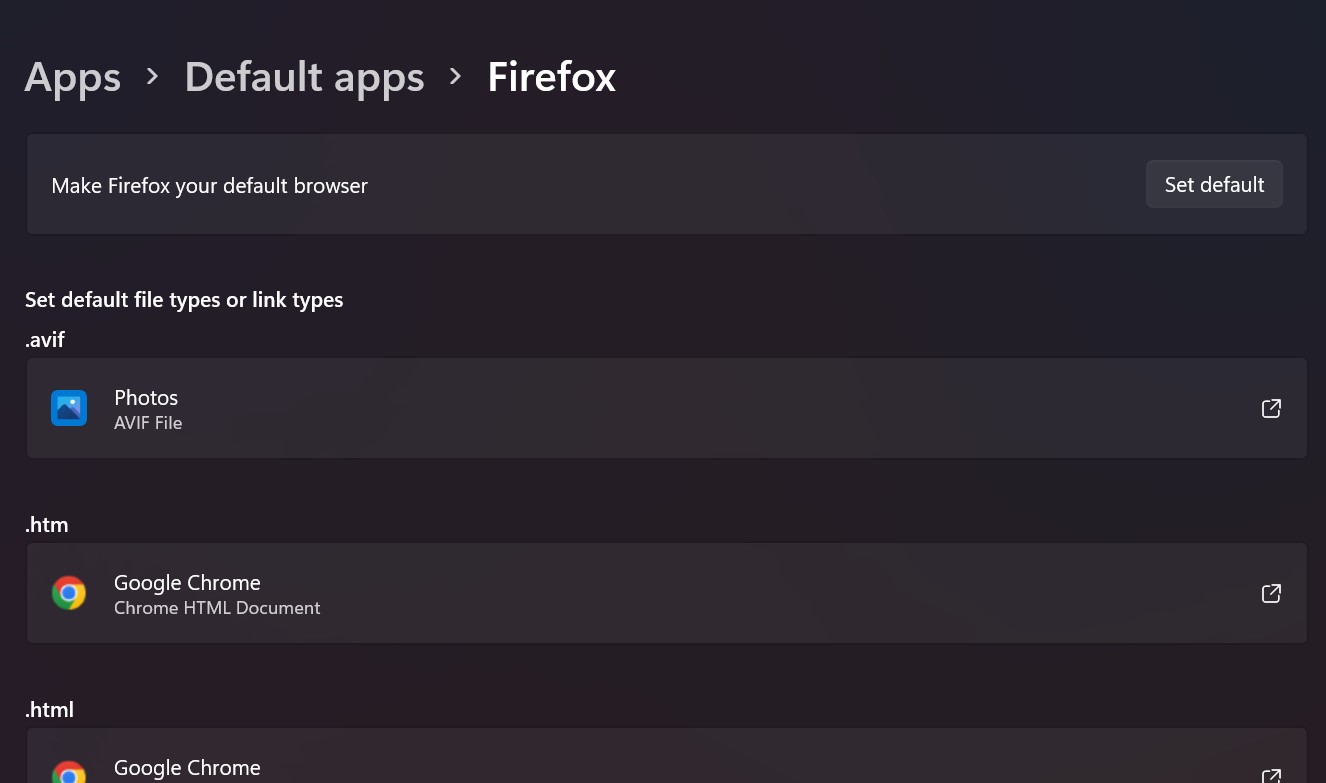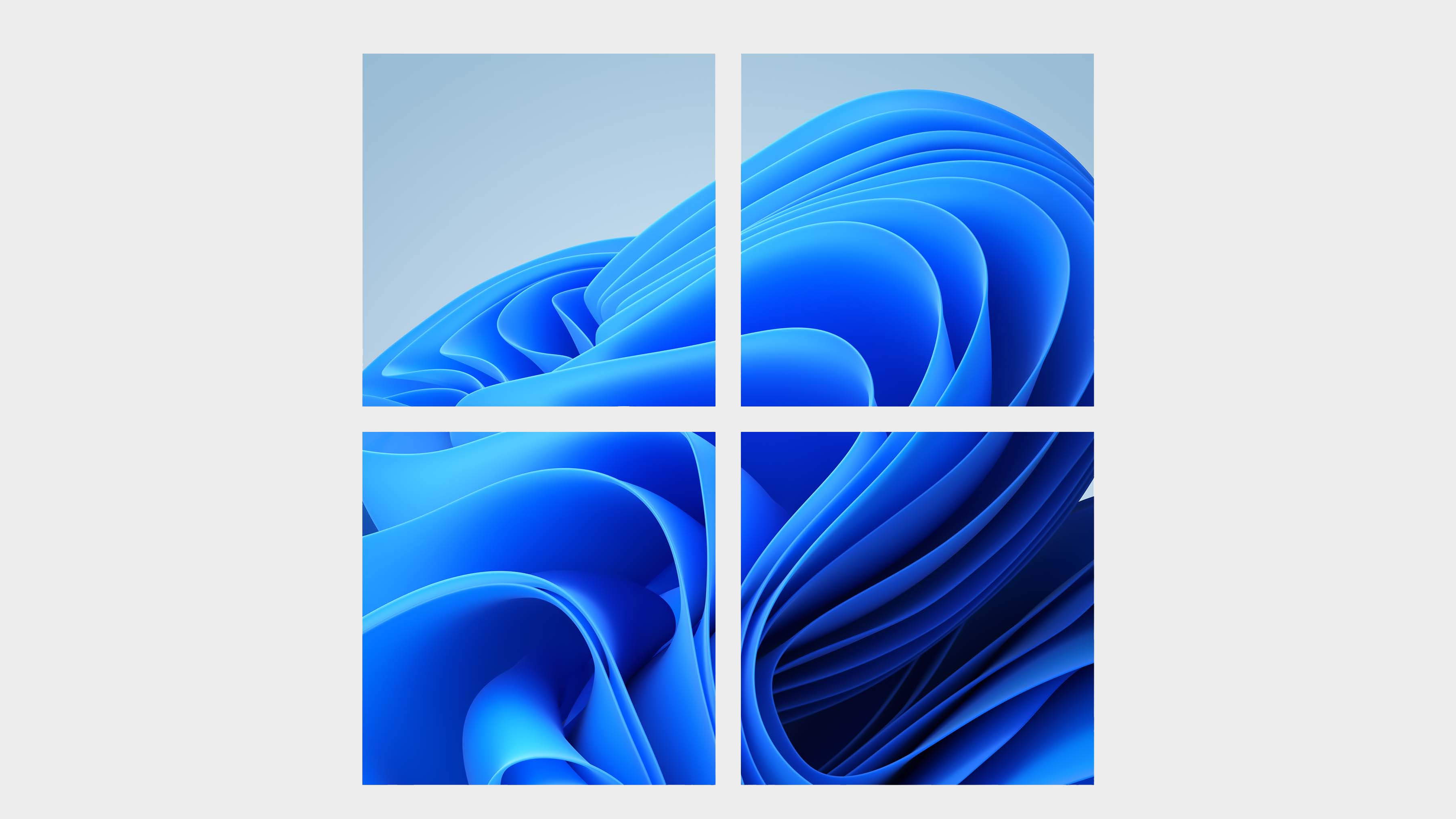Rival browsers are frustrated with Microsoft's default browser options on Windows 11
Microsoft has made it easier to switch default browsers, but its rivals still aren't convinced.

Microsoft recently moved to allow users to once again change their default browser with a single click on Windows 11. Available as an optional download, once installed users are able to switch easily between which browser is set to default—functionality that was available on Windows 10 but missing on Windows 11. However, some browser rivals of Microsoft are not yet satisfied with the change.
Prior to this (optional) update, users were required to set their browser of choice for every file-type that might be used, such as HTTP, HTTPS, .HTML, etc. Many argued that by making the process so specific and long-winded, it would cause fewer users to switch to any other browser than Microsoft's own Edge, which is the default on the OS.
Now Microsoft is offering a simpler switch, but as a cumulative update most users will have to update to it themselves. To do so, just check your Windows Update tab in Settings for '2022-03 Cumulative Update for Windows 11 for x64-based Systems (KB5011563)'.
But browser rivals aren't too happy about how this has all gone down. Both Vivaldi and Firefox have raised concerns with The Register regarding the change.
"This should apply to all users, not just the ones who are technically competent enough to realise that they need to install an optional update, and know how to actually do so. It should be installed for all users," Vivaldi's Jon von Tetzchner says.
"While they have made an attempt, the fact that it has been done the way it has leads to the assumption that it is only being done to avoid being prosecuted for anticompetitive behaviour, not to actually solve the underlying problem."
Vivaldi even goes one further to say that "They [Microsoft] continue to try to make it harder to switch to and use other browsers. We look forward to the EU following up on this malpractice."
Keep up to date with the most important stories and the best deals, as picked by the PC Gamer team.
Strong words.


Firefox's maker, Mozilla, appears to agree with the sentiment that Microsoft could do more to make this change easy for users, though does not word its disagreement quite so strongly.
"People should have the ability to simply and easily set defaults and all operating systems should offer official developer support for default status.
"In practice, we'd like to also see progress on reducing the number of steps required to set a new browser as default, and on opening and making APIs available for apps to set default that other Microsoft applications use," Mozilla says to The Register.
It's understandably a frustration for browser developers that do not hold a majority of the market captive to be side-lined in such a way. Edge should be the least of Vivaldi and Firefox's concern, as Google Chrome gobbles up close to 70% of browser users. However, these smaller browsers have to compete with both Chrome's supremacy and Edge's OS home turf advantage.

Windows 11 review: What we think of the new OS
How to install Windows 11: Safe and secure install
What you need to know before upgrading: Things to note before downloading the latest OS
Windows 11 TPM requirements: Microsoft's strict security policy
It's promising at least to see Microsoft acknowledge that it must be a simple switch for users to change browsers and other default apps. While it's understandable that the OS creator wants people to use its apps, ultimately it needs to get them to do so by offering the superior option.
No doubt it's tough to get users to switch browsers nowadays, however, as they've become far more involved applications than ever. You have logins, with passwords, addresses, favourites, bookmarks, and maybe even game streaming available per browser, which does make it harder for smaller browser companies to convince users to make the change.
Though if you want our vote, we tested today's top browsers out and decided Firefox was the best for PC gaming. That's good news for me, too, as I'm resolutely a Firefox man.

Jacob earned his first byline writing for his own tech blog. From there, he graduated to professionally breaking things as hardware writer at PCGamesN, and would go on to run the team as hardware editor. He joined PC Gamer's top staff as senior hardware editor before becoming managing editor of the hardware team, and you'll now find him reporting on the latest developments in the technology and gaming industries and testing the newest PC components.

